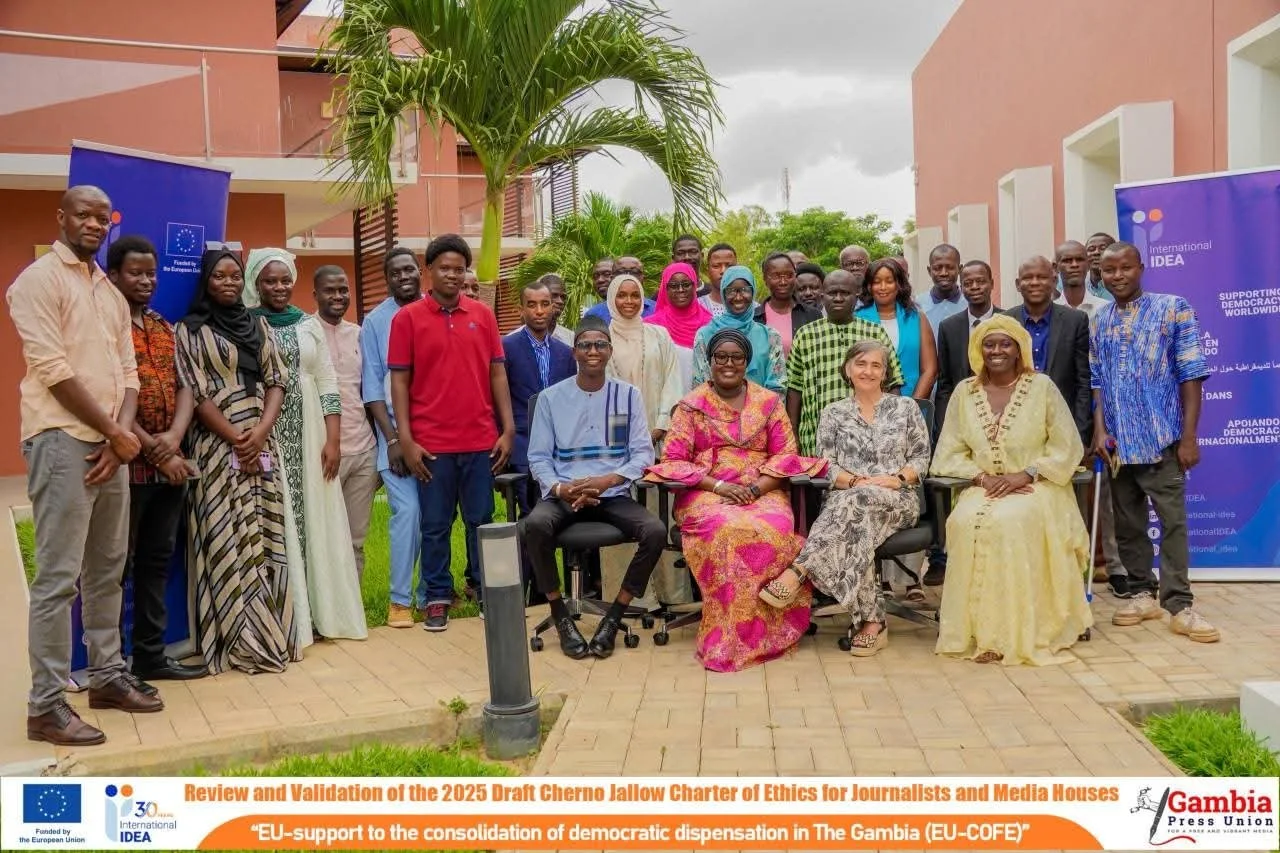New Revised Journalism Code of Conduct to Set Standards for AI in Newsrooms
Delegates Group Photo © GPU Facebook
By Edward Francis Dalliah
As artificial intelligence (AI) continues to reshape institutions worldwide, including journalism, The Gambia Press Union (GPU) is taking proactive steps to guide its responsible use in the media. With support from International IDEA, the union has embarked on a review of its Cherno Jallow Code of Conduct for Journalists, aiming at setting ethical standards for AI usage, among emerging issues.
The document was the focus of a two-day stakeholder validation workshop held on the 6th – 7th August 2025 at the African Princess Hotel in Kololi, where 40 stakeholders, including representatives of journalists’ associations, disability, children, and women’s groups, reviewed and validated the document.
A key highlight of the draft is Part XII, which introduces guiding principles for the use of AI in journalism. These include the disclosure of AI-generated or AI-assisted content and verifying facts on AI-generated content with at least two reliable sources before publication, among others. These measures aim to ensure transparency and accountability in the use of technology in media practice.
Speaking at the opening of the event, the GPU Vice President, Sheriff Saidykhan, told stakeholders present that the new revised charter will enhance public trust in the media, promote media professionalism, and empower journalists to navigate through the new criminal code of The Gambia that continues to stifle press freedom.
Originally adopted in 2016 and named after the veteran journalist Cherno Jallow, the Code of Conduct has served as a professional guide for journalists, from gathering information to publishing news across print, broadcast, and digital platforms.
The charter is revised every five years to keep pace with the new developments in the media landscape. While the first review took place in 2020, the second review, held in 2025, includes the use of AI in newsrooms, hate speech, information disorder, disability inclusion, climate change and the environment, and public health emergencies.
In her opening remarks, International IDEA’s Head of Country Office, Ms. Jainaba Faye, described the draft as “a forward-thinking framework that addresses some of the most pressing challenges facing journalism today.” She praised the inclusion of Hate Speech, Fake News, Disability and AI as “not only timely but relevant to our national context.” Speaking on the danger hate speech, fake news, and disinformation can pose, Ms. Faye said they can “unravel the very fabric of national unity with their power to mislead, inflame, and destabilise.”
However, she pointed out that “the antidote [to these things] lies in the values of journalistic rigor: verification, transparency, and ethical storytelling.” She added that practising journalists “must be equipped to report with fairness, to resist inflammatory rhetoric, and to promote dialogue over division.”
Speaking in a similar tone on the dangers, the EU Ambassador Ms. Imma Roca I Cortés said, “In today’s digital age, the rapid spread of information, disinformation, and misinformation poses unprecedented challenges.”
She added that “hate speech can deepen divisions and undermine peace, while fake news erodes public trust and threatens democratic processes. [But] by addressing these issues in this code of conduct, you are taking a bold step toward ensuring that journalism in The Gambia remains a force for truth, unity, and progress.”

